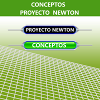LEARNING RESOURCES
-
Principio de Huygens

Método de análisis aplicado a los problemas de propagación de ondas. Se llama así en honor a los físicos Christiaan Huygens y Augustin-Jean Fresnel
Contexto educativoTipo de recursoCollections -
Tipos de lentes (flash)

En el visual se ve cómo se comporta la luz cuando atraviesa una lente bicóncava y una biconvexa.
Contexto educativoTipo de recursoCollections -
Viajes interesterales

Concepto de viajes interestelares
Contexto educativoTipo de recursoCollections -
Work-kinetic energy theorem

The theorem of live forces establishes that the work carried out by the forces acting on a system, is equal to its kinetic energy.
Área de conocimientoContexto educativoTipo de recursoCollections -
Work carried out by a pendulum

The following visual studies the work done by a pendulum: it is difficult to calculate as the force which acts on it varies constantly.
Área de conocimientoContexto educativoTipo de recursoCollections -
Work done streching a spring

When we stretch a spring, the work we carry out varies as we stretch it. The following visual simulates the force exerted by a student on a spring. Choose a force constant for the spring and start the visual.
Área de conocimientoContexto educativoTipo de recursoCollections -
Work of friction

The forces of friction, which oppose displacement, also carry out work when a body is moving. The work of friction is converted into heat. The greater the force of friction, the more force must be exerted to move the body. Verify how friction affects the displacement of some blocks.
Contexto educativoTipo de recursoCollections -
Wind energy

The educational resource shows information about the concept windy energy and its advantages and its disadvantages.
Área de conocimientoContexto educativoTipo de recursoCollections -
Which moves faster? (II)

Which UAM moves at a greater speed?
Contexto educativoTipo de recursoCollections -
Which moves faster? (I)

Which URM moves at a greater speed?
Área de conocimientoContexto educativoTipo de recursoCollections -
What is work? (II)

Work is one of the ways of transmitting energy between bodies. The following visual will help you understand the concept of work by modifying the force and the angle which it forms with the horizontal. Click on help to see the possibilities it offers.
Contexto educativoTipo de recursoCollections -
What is work? (I)

The educational resource shows a visual about the work: in Physics, for there to be work there must be a force acting on an object and displacement of the object.
Contexto educativoTipo de recursoCollections -
What is the normal force?

Concept of normal force: is the force exerted by a surface on a body which is resting on it.
Área de conocimientoContexto educativoTipo de recursoCollections -
What is the newton?

Concept of Newton. The newton is the unit of force in the International System of Units.
Contexto educativoTipo de recursoCollections -
What is radioactivity?

Concept of radioactivity. Radioactivity is the property which certain substances have for emitting radiation.
Contexto educativoTipo de recursoCollections -
What is energy?

A picture shows some transformations of energy. The energy from the sun passes to plants, to oil, to coal, to animals and to human beings; they take advantage of it by using the energy from oil, animals, coal, etc.
Área de conocimientoContexto educativoTipo de recursoCollections -
Waves in the sea

Concept of Waves in the sea. The waves on the sea or those which form on any surface of water, are a special instance of undulatory movement.
Contexto educativoTipo de recursoCollections -
Wavefront

Concept of wavefront: wavefront is the locus of points characterized by propagation of positions of identical phase.
Contexto educativoTipo de recursoCollections




